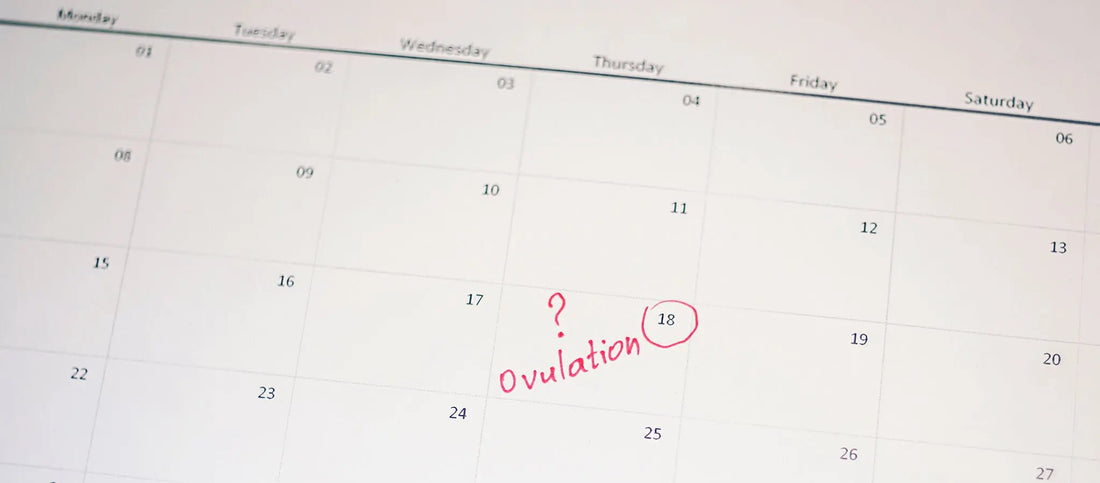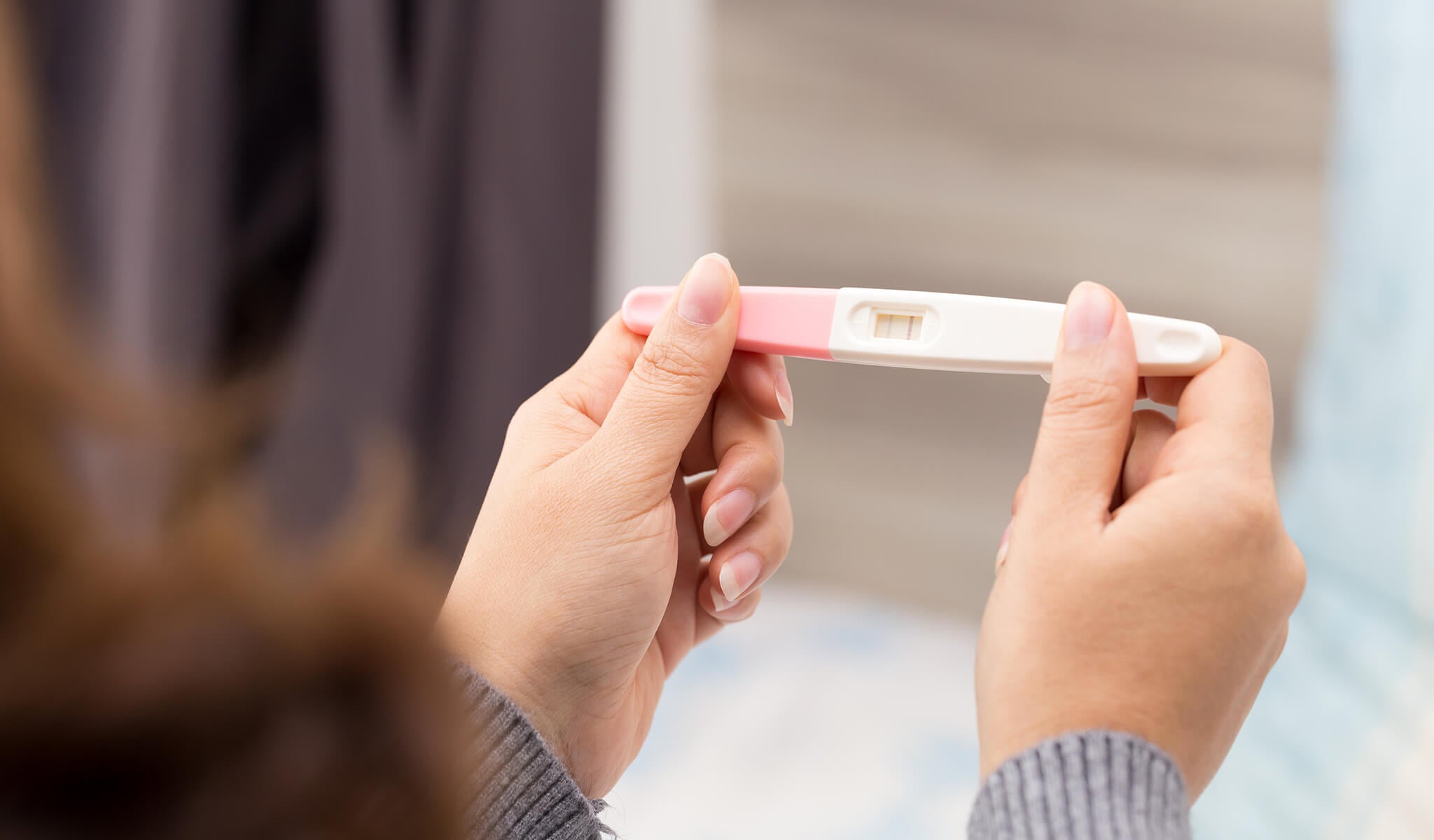
Nobody knows your body as well as you do. The two of you have been together for your entire lives, you’ve spent every moment together. Despite your closeness, it’s entirely possible that you might have trouble deciphering the exact time of the month you experience ovulation. The inability to recognize ovulation symptoms is not uncommon, and for many women, there simply aren’t any.
Thankfully, there are tools available, both natural and store-bought, that will help you pinpoint when your body is preparing to ovulate. This knowledge is helpful on various levels, from understanding why you’re feeling a certain way during a specific time in the month, to trying to avoid or achieve pregnancy.
Right Time to Conceive
Knowing when to conceive comes from familiarity with your body, how ovulation affects you, and the use of over-the-counter items that can help you determine the days when you’re most fertile, such as an ovulation calculator. While no two women are the same, ovulation typically happens about 14 days before your period starts.
If you use a period tracker, you’ll find that you may be in tune with your individual timeline. The right time to conceive all depends on the length of your cycle and knowing when you’re the most fertile. We’ll talk a bit about the best time to get pregnant as this article progresses, but for now, know that the right time to try conceiving is different for everyone.

Ovulation Calculator
One of the most common ways that women pinpoint their ovulation days is through the use of an ovulation calculator. Over time, as you become familiar with your cycle, you’ll have better information to plug into your ovulation calculator.
You might picture a handheld device of sorts when we use the term “calculator”, but in reality, an ovulation calculator is an online tool or application that allows you to track symptoms and cycles to predict the time you might be ovulating. If you’re trying to conceive, you can purchase a kit, complete with ovulation test strips, that will detect the necessary hormones in your body to indicate ovulation.
In reality, ovulation might be difficult to predict, especially if you have an irregular cycle. However, spending a few months putting information into your ovulation calculator or app will give you a better idea of what might be going on. When in doubt, ovulation tests might just be your best friend.
How to Know if You’re Ovulating
There are a few tell-tale ovulation symptoms that will let you know when it’s time. For some, these symptoms are apparent, but for others, they may go unnoticed. The best time to check ovulation is 12 to 14 days before you’re expected to start your period, as you’ll be most fertile on the days surrounding. If you don’t have test strips handy, and your cycle isn’t consistent, you can learn the signs.
- Invest in a good thermometer, and take your temperature as soon as you wake up, before getting out of bed. Track your body temps, as your basal (resting) body temperature, falls slightly and then rises again when ovulation begins
- Cervical mucus becomes thin, clear, and slippery, with a consistency similar to egg whites
- Breast tenderness
- Ovulation pain, including lower back pain
- Mild mood swings
- Change in your cervical position
- Increased sexual desire
Menstrual Cycle
Irregular cycles are frustrating for many women, primarily when trying to conceive. Since your ovulation is based on the length of your menstrual cycle, frequent changes may delay pregnancy. There are other menstrual cycle factors that can affect ovulation as well, and these include:
- Your age
- Your weight (overweight or underweight)
- Smoking
- Alcohol abuse
- Stress
- Exercise
- Birth control method
If you’ve been trying to conceive and your efforts have so far been futile, you might want to take a closer look at your cycle and your lifestyle! Talking with your gynaecologist or a fertility specialist can open up a world of understanding, helping you to determine when you ovulate.

Chances of Getting Pregnant During the Menstrual Cycle
There’s a long-standing rumour that states pregnancy is impossible when you’ve got your period, but this information is incorrect and probably responsible for thousands of surprise pregnancies! Though the chances are lower, all women ovulate differently, so it is statistically possible for you to become pregnant when you're menstruating.
Experts state that it’s more likely for you to become pregnant in the latter days of your cycle, or near the end of your period, than it is in the beginning. This information comes as a shock to many women, but nonetheless, it’s accurate. So, if your ovulation test strips come back positive near the end of your period, chances are, you’re actually ovulating.
Preconception Health
Those trying to conceive can do more than just document their cycles and stock up on ovulation tests. To keep your cycle on track, you’ll want to keep your health in check, which also helps to prepare your body for pregnancy.
Always speak with your doctor regarding which lifestyle changes you should make in regard to your preconception health, as they can outline a plan that suits your individual needs. In general, a few things that women (and men) can do to stay in optimal preconception health are:
- Make a plan for the future
- See your doctor
- Stop drinking and smoking, as well as any drug use
- Add a folic acid supplement to your diet
- Avoid toxic substances
- Maintain a healthy diet and weight
- Know your family history
- Take care of your mental health
Any steps you can take toward making yourself happy and feeling less stress mean you’re taking action to get into optimal health.
Frequently Asked Questions
Because the topic of ovulation can be utterly confusing, such as wondering about the ability to actually conceive on your period or the chances of getting pregnant on day 11 of cycle, women around the world have plenty of questions. The topic of fertility is everything but straightforward, so here are a couple of FAQs that may have left you guessing in the past.
How long does ovulation last?
Again, women are different, but ovulation occurs once monthly and lasts for around 24 solid hours. If you’ve been wondering how far after ovulation can you conceive, doctors state that any released egg that isn’t fertilized within 12 to 24 hours will die.
However, this doesn’t mean you should only have sex on the day you ovulate. Sperm can live inside your body for 3 to 5 days, so having sex in the days surrounding your actual ovulation date can increase the chances of pregnancy.
Can I get pregnant if I’m not ovulating?
Technically, if you’re not ovulating, you cannot get pregnant. However, this information is tricky, because you can absolutely get pregnant in the days leading up to, and after, you ovulate, as your body is becoming fertile and preparing to release an egg. If you have active sperm inside of your body when the egg is released, pregnancy is possible.
You do not have to have sex on the day of ovulation to become pregnant. If it helps, you can gain a better knowledge of possible pregnancy symptoms after ovulation day by day.

